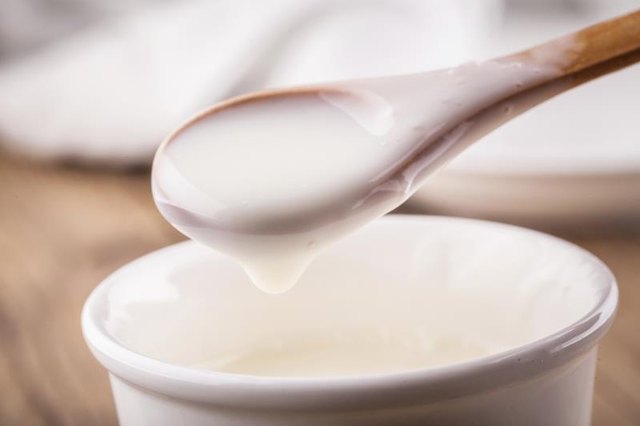
Antibiotics are a great medical advancement. The medicines destroy illness-causing bacteria, which helps infected people heal and get better. Antibiotics, however, can also destroy beneficial bacteria and cause additional side effects. Eating certain foods can help replenish these good bacteria and aid in alleviating those secondary side effects.
Get Plenty of Probiotics
One of the side effects of many antibiotics is diarrhea. To help reduce diarrhea while finishing a course of antibiotics, probiotics are often recommended, according to a 2012 article published in the "Journal of the American Medical Association." Probiotics are useful because they help restore the usual balance of bacteria in the gut. These beneficial bacteria might also boost the effects of the antibiotic, according to a 2006 article published in the "Canadian Journal of Infectious Diseases and Medical Microbiology." Yogurt, kefir, sauerkraut and kimchi are food sources of probiotics, or your doctor might suggest a probiotic supplement as an alternative.
Fill Up on Vitamin K
If you need to take antibiotics for extended amounts of time, you might need to take supplemental vitamin K, according to the University of Maryland Medical Center. This occurs because the bacteria that naturally occurs in your digestive tract can be destroyed when you're taking antibiotics, and that bacteria is partially responsible for the amount of vitamin K in your body. If your body isn't making any vitamin K, you might become deficient. Leafy green vegetables, asparagus, green tea and beef liver are food sources of vitamin K.
Vary Your Diet
Sometimes antibiotics can cause an overgrowth of yeast, according to Lewis Mehl-Madrona, M.D., writing for the Natural Health website. Excess yeast can cause an upset stomach and, in women, vaginal yeast infections. Eating garlic and onions can combat this problem, Mehl-Madrona notes. Taking antibiotics can reduce vitamin B levels, so add whole grains and green vegetables, such as broccoli, to your diet, Nell Nelson recommends in her book "Eat Well."
Avoid Certain Foods
Just as eating certain foods can negate the drawbacks of taking antibiotics, avoiding other foods will help ensure proper absorption of the medication so it works like it's supposed to. Skip acidic foods, such as orange juice, citrus fruits, tomato sauce and soda, recommends Katrina Seidman, a registered dietitian at the Johns Hopkins Bloomberg School of Public Health, because they can interfere with the proper absorption of the antibiotics. Avoid sugary foods, and don't eat anything with calcium or iron at the same time that you're taking the antibiotic because these minerals can get in the way of proper absorption.





No comments:
Post a Comment